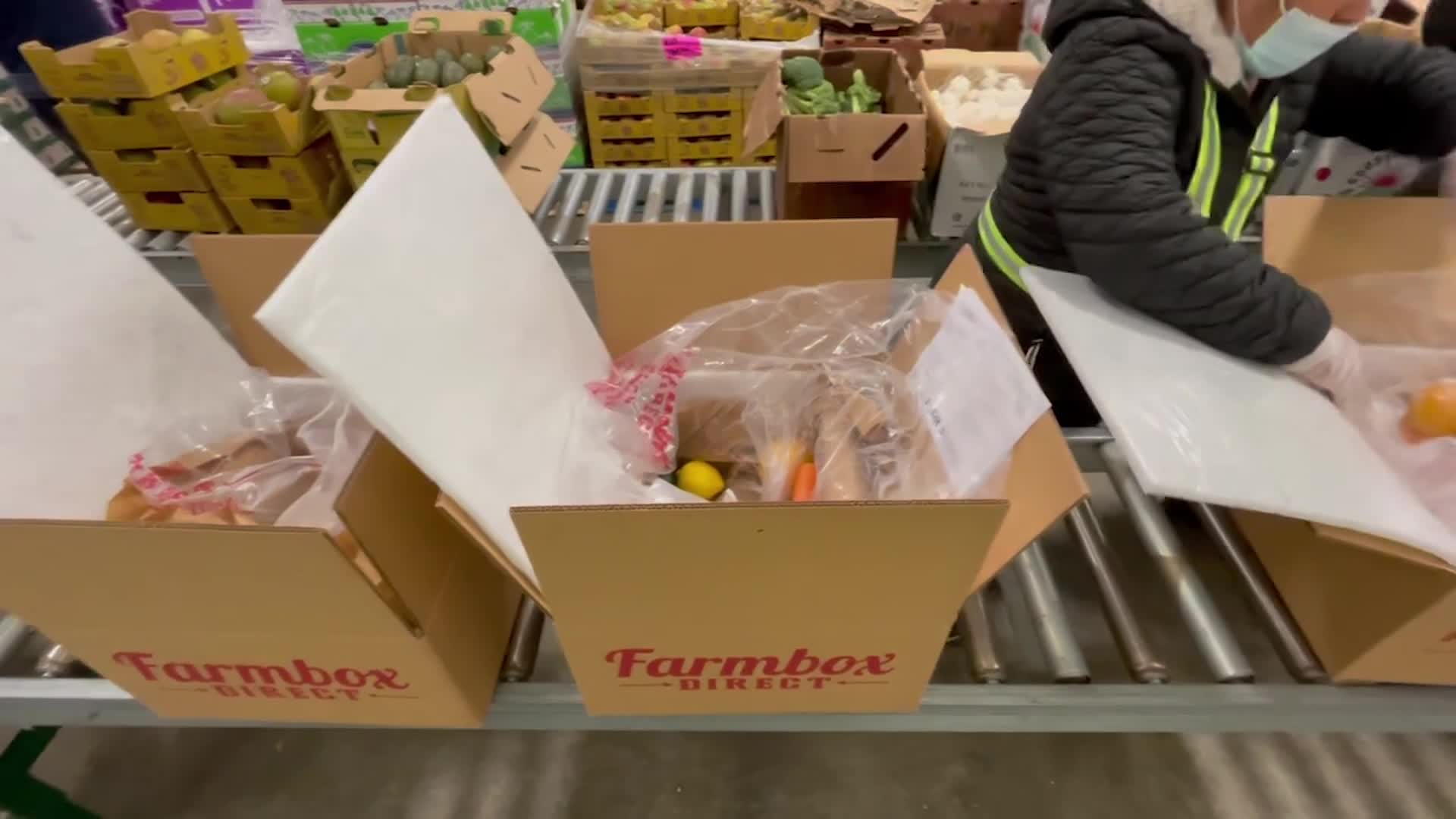Two metro area food aid organizations help seniors facing food insecurity
Tom Rabatin and Catherine Crandall were happily discussing food prep ideas at his north Minneapolis home.
But this was not a cooking show.
“Catherine’s always telling me to eat more vegetables and fruits,” Rabatin, says. “I look forward to the extra vitamins and minerals.”
The 79-year-old retired restauranteur, and Crandall, his HealthPartners Care Coordinator, shared their stories about healthy food — but also wanted to show us a what HealthPartners calls a ‘farmbox,’ packed with 20 pounds of fresh fruits and vegetables.
“I think it’s a tradeoff to the healthier foods for people,” Crandall explains. “It can lower the risk of diabetes, obesity, heart disease, all of those things we’re trying to avoid.”

(KSTP)
Since January, HealthPartners has delivered nearly 18,000 boxes to more than 1,800 recipients.
It’s part of an effort to give seniors, including those on fixed incomes — access to healthy food.
The health care provider is partnering with FarmboxRx, a national food supplier, to give the boxes out to Medicare recipients for free.
Rabatin loves the idea.
“They always bring up to you, diets and exercise and so that’s something I like to do, even though I’m a senior citizen,” he declares. “Probably this is something I should have done a long time ago.”
Rabatin, whose family has a history of heart disease, isn’t alone.
The latest numbers from Feeding America, a national hunger project, show that one in fifteen seniors nationwide are food insecure — with limited access to enough food to live a healthy lifestyle.
“So we’re seeing a lot of seniors visiting food shelves in Minnesota, often for the first time,” says Taylor Day, the Senior Program Manager with Second Harvest Heartland. “Seniors are the fastest growing population using food shelves.”
Day says her organization serves about 6,500 seniors a month, through a USDA effort program called the Commodity Supplemental Food Program, or CSFP for short.
“Especially over the COVID pandemic, we’ve seen those seniors need to access those food resources and come to us, and a lot of community partners for that as well,” she notes.
The Department of Human Services says senior visits to food shelves have increased 31% since pre-pandemic 2019 — that nearly 4% of Minnesota seniors — about 36,000 people — are dealing with food insecurity issues.
“With the cost of gas rising, with the cost of housing rising, with the cost of medicine rising, our seniors are having to make really tough decisions about what they are going to spend their fixed incomes on,” Day says. “And a lot of times, in that equation, food loses out.”
She also notes some seniors have genuine fears about COVID, and are afraid to buy food in person.
She says that’s very isolating, especially for those living alone.
Both HealthPartners and Second Harvest Heartland are trying to get the word out — that seniors have options.
Second Harvest, for example, is using DoorDash.
The HealthPartners Farmbox program also delivers.
“Maybe they don’t have access to nutritious food, so the box comes to their house,” Crandall says. “They can sign up to get it once a month or twice a month.”
As for Rabatin?
He’s now kind of a healthy food ambassador — sharing his Farmbox shipments with other seniors in his building.
“Knowing I can eat only so much and they always bring I think twenty pounds of fruits and vegetables a month, that I know there’ll be leftovers,” he declares. “Everybody is aware of that system, and then we all share the same leftover food that’s in the lobby.”
You can find out more about the FarmboxRx program here.
More information about Second Harvest Heartland is available here.